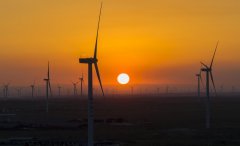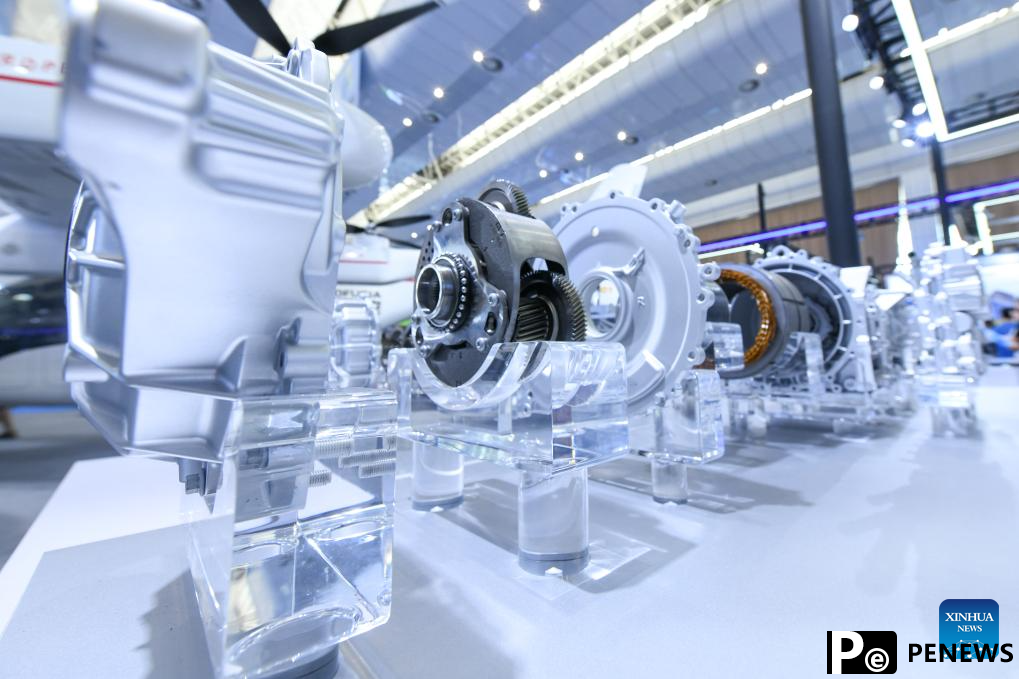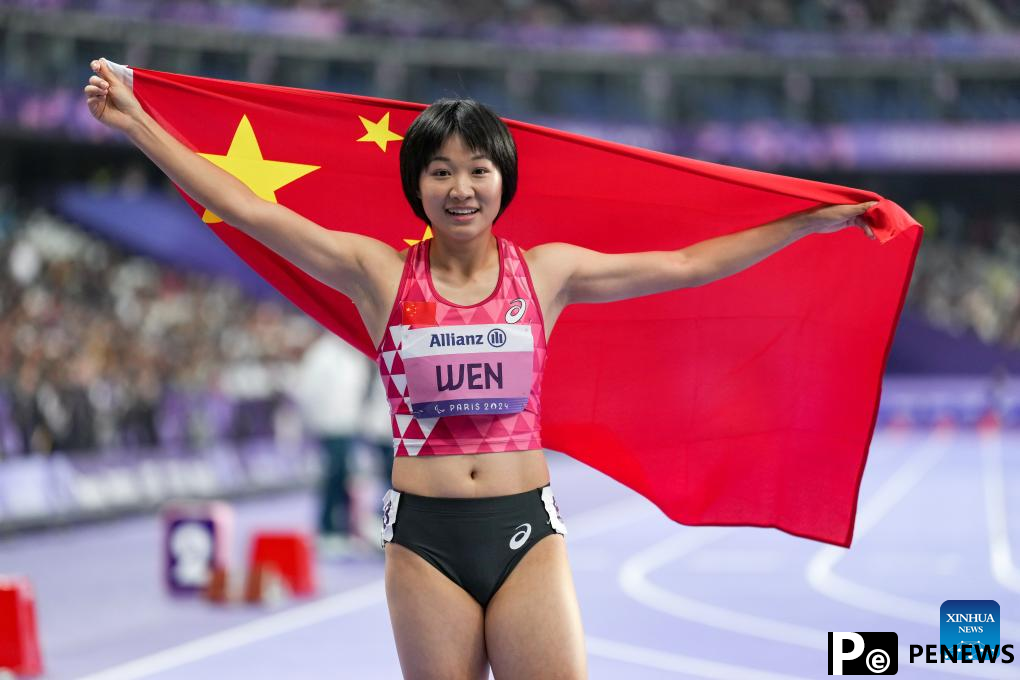Home>>
Explainer: What makes China and Africa natural green partners(Xinhua) 10:44, September 04, 2024
BEIJING, Sept. 3 (Xinhua) -- As China's green industry, particularly its new energy vehicle (NEV) sector, continues to thrive, Western politicians and media outlets have begun accusing China of "overcapacity," alleging it would threaten developing countries.
However, this baseless rhetoric has had little impact in Africa. Recognizing the significant benefits of Chinese green products, these nations have not only embraced them, but also viewed them a crucial way to addressing their development needs.
Why is the Western narrative of Chinese overcapacity failing to gain traction in Africa? Why are Chinese green products so popular across the continent? And what makes China and Africa natural green partners?
CLEAN ENERGY PROVIDER
Energy shortage is a significant impediment to economic development in Africa. Although energy demand is growing across the continent, energy use per capita remains among the lowest in the world despite ample energy resources.
Africa consumes a disproportionately low amount of energy, accounting for less than 6 percent of global energy consumption despite hosting 18 percent of the world's population, according to a recent report by the Center for Strategic and International Studies.
When excluding South Africa, sub-Saharan Africa's per capita energy consumption is just 180 kilowatt-hours compared to 6,500 in Europe and 13,000 kilowatt-hours in the United States, the center said. Given Africa's rapidly growing population, it said there is an urgent need to increase the clean energy supply.
More than 600 million people on the continent currently lack access to electricity, according to the International Energy Agency. Against this backdrop, China's capacity for new energy products is hardly excessive; instead, it is a timely response to the urgent African demand for clean energy.
Africa has abundant hydro, solar, wind, geothermal, and bioenergy resources. However, Africa's current energy generation mix continues to rely on fossil fuels, while renewable sources account for less than 18 percent of the electricity output, according to German statistics platform Statista.
Africa faces a significant energy shortfall, particularly regarding clean energy. "The scale of what Africa needs to overcome her existential challenge is huge," said Charles Onunaiju, director of the Center for China Studies in Nigeria. "If you take the lens of the camera out of the glimmering cities and to the suburbs, you see that there is more to be done."
Despite the pressing demand for clean energy, change is underway across Africa. From Kenya's Garissa Solar Power Plant, the first large solar power plant tapping into the country's vast solar resources, to South Africa's De Aar Wind Farm, more than 100 green energy initiatives jointly led by China and Africa under the Forum on China-Africa Cooperation are bolstering the continent's green transition.
Zimbabwean economist Brains Muchemwa told Xinhua in a recent interview that Chinese new green energy products have significantly improved the lives of many Africans despite Western criticism of China's growing green industry production capacity.
At the first African Climate Summit in September 2023, China announced that it would launch an "Africa Solar Belt" program with 100 million yuan (about 14 million U.S. dollars) in funding for solar projects in regions not served by main electrical grids. The program aims to support at least 50,000 families.
By harnessing the abundant sunlight available in many African countries, Chinese projects have significantly increased the availability of clean and reliable electricity, particularly in remote and underserved areas, Benjamin Mgana, chief editor of foreign news at The Guardian newspaper in Tanzania, told Xinhua.
AFFORDABLE GREEN SUPPLIER
Despite the West's continuous speculation of China's "overcapacity" in green industry, many Chinese NEV companies are driving an electric vehicle revolution in many parts of Africa, creating jobs and supporting a transition away from fossil fuels.
Kenya's startup BasiGo was the first company to launch electric buses in the country in March 2022, using parts designed by Chinese automaker BYD. Mutoro Sifuna, BasiGo's marketing director, emphasized the significant energy cost savings of electric buses compared with diesel ones. They plan to introduce and operate 1,000 electric buses by 2025.
The affordability and practicality of Chinese EVs make them appealing to African consumers, especially in urban areas where the demand for clean and efficient transportation is growing, said Mgana.
Adhere Cavince, a Kenya-based international relations scholar, echoed this view, highlighting that Chinese products are not only affordable and durable but also accessible. He emphasized that China's enhanced industrial value chains have made accessing these products easier for African consumers.
"As the largest source of green technologies and products, many African countries are now looking to China to access solar panels to power villages across the continent," he said.










